275 MacLaren Street, Ottawa, ON K2P 0L9
The Urban Aboriginal Knowledge Network, in partnership with the National Association of Friendship Centres, completed a multi-site research project to assess the urban Indigenous service delivery landscape. This research project was completed in two phases: the first was a national overview of the existing services and organizations for urban Indigenous communities and the second is an in depth examination of urban Indigenous organizations and services at a regional level.
This report represents the first phase of the Urban Aboriginal Knowledge Network’s National Project on The Urban Aboriginal Service Delivery Landscape. Phase 2 of the study, led by each of the UAKN’s four regional research centres, will involve a more in-depth study in the regions, including interviews and community perspectives from the ground. In terms of community-based values, the inventory and theme framework for the Phase 1 project was developed from the perspective of Indigenous-based research frameworks and paradigms.
Phase two summarizes the reports submitted by each UAKN region, Western, Prairie, Central and Atlantic. Each region consists of two provinces, with the exception of the Atlantic region.
The project’s main goals were to:
Examine the invisible infrastructure of urban Indigenous service delivery organizations by developing an inventory of organizations and their service areas with a view toward identifying gaps for increased service improvement;
Examine organizations that facilitate urban Indigenous people’s participation in the economy;
Explore improvement options for urban Indigenous economic participation, for enhanced services in underserviced areas and enriched relationships between urban Indigenous organizations, non – Indigenous organizations and First Nations, Métis, Inuit organizations;
Highlight services that enhance participation in the economy, innovative partnerships, and positive relationships between various stakeholders.
Phase 1 and Phase 2 of the National Report and the Regional Reports can be found here